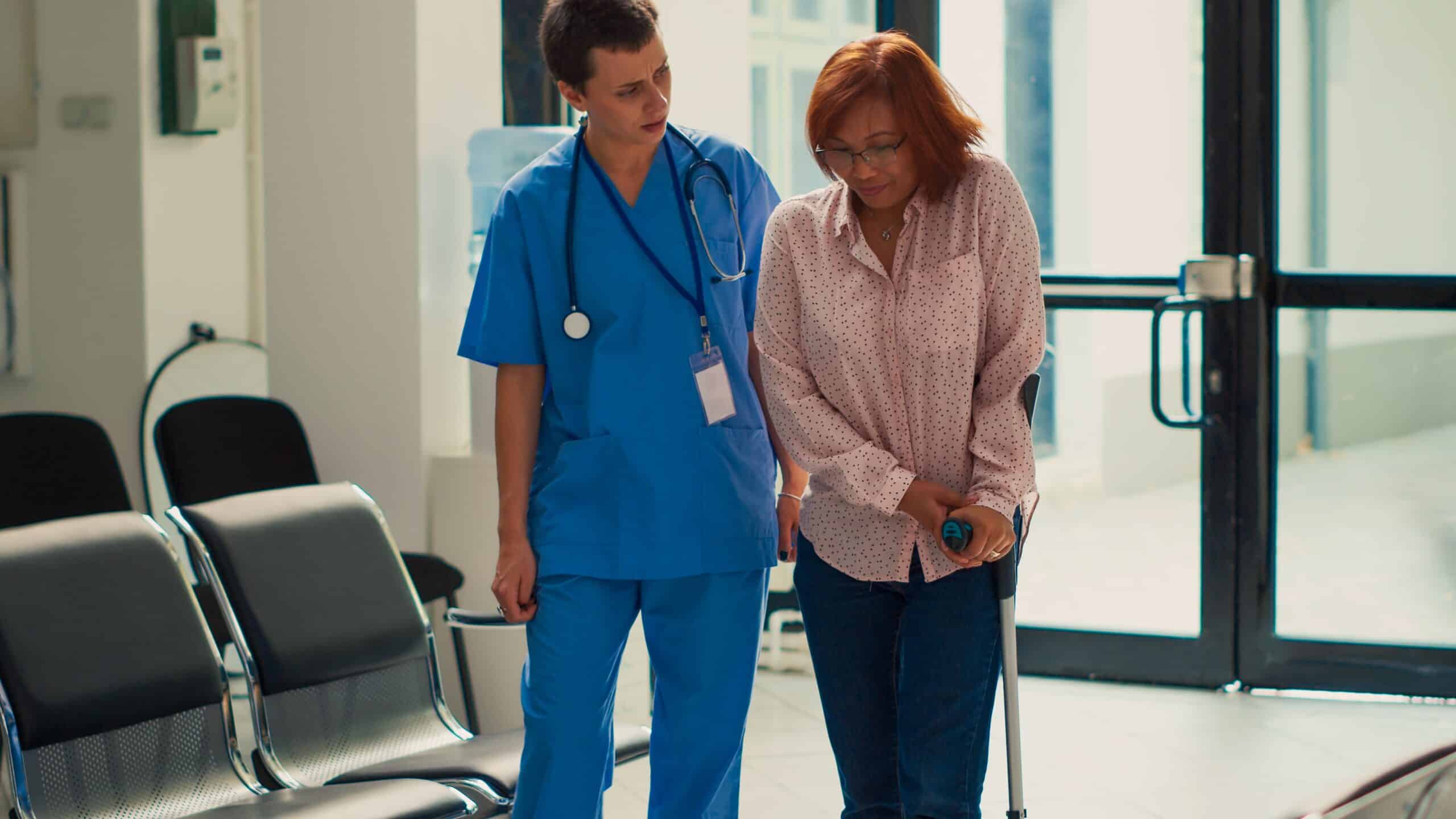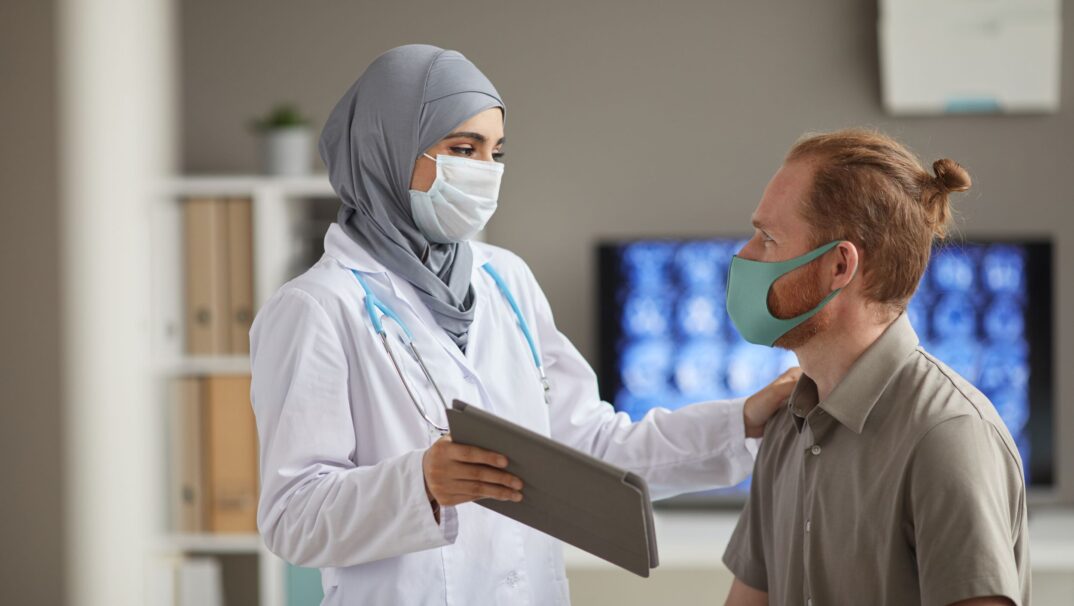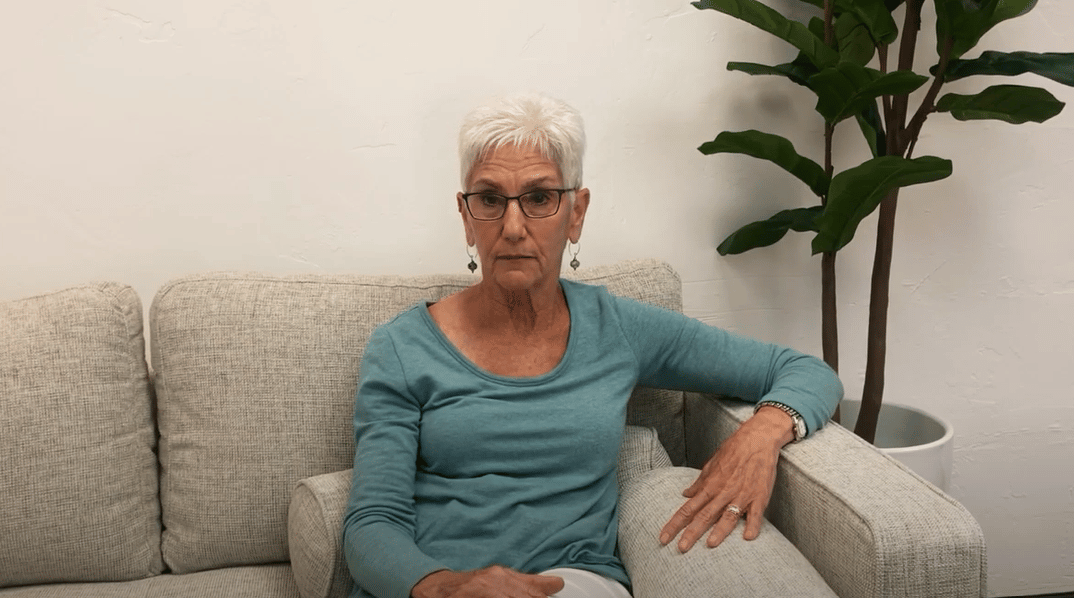Tips for Finding The MS Care Provider Who is Right For You
Accessing Specialty MS Care Can Be Tough | The Institute for Public Health Innovation Is Working to Help

4 May 2023 | ~7:04 Engagement Time
Introduction
Living with MS, you likely need to see a neurologist as part of your health care plan. It is estimated more than 1 million people in the US live with MS (Luxner, 2017). Yet, there are only about 15,000 neurologists to treat them and millions of other people living with a neurological condition.
Finding a neurologist with MS knowledge can be tough, even in a city. Finding a neurologist can be an even greater challenge for those living with MS in a rural area because only about 70 neurologists (.5%) practice in rural areas nationwide (Curtis, Elrahi, Bilello, Rai, 2020). This unequal access creates notable challenges for people living with MS in rural areas.
This article will:
- Share some background on underserved rural communities in the U.S.
- Discuss the need for increased awareness of MS risk factors, symptoms, and treatments.
- Explore the benefits of social support resources for people living with MS and care partners.
- Offer ways to get involved to help guide a rural health improvement initiative.
Interested in helping the Institute for Public Health Innovation in their initiative to provide MS-specific education and training to frontline and community healthcare workers and promote MS awareness campaigns in rural areas? Get involved by reaching out to Sarah Ward by e-mail at sward@institutephi.org or by phone at 202-987-2851.
Rural Healthcare Challenges
Rural areas often lack the basic resources needed to operate a healthcare system. As a result, residents of these communities face significant challenges when accessing healthcare and social support services. Some of those challenges are:
Low numbers of physicians and specialists living or practicing in rural communities.
Not having enough healthcare providers to meet the needs of rural residents can lead to delayed diagnoses and treatment. This limited supply of healthcare providers can also affect ongoing treatment, as many rural residents are forced to travel long distances for care.
The closure of rural hospitals.
When a hospital closes, the previously served residents experience limited access to emergency care, increasing the risk of negative outcomes in serious health situations. Hospitals also have advanced medical equipment that can aid in diagnosing and treating more complex health conditions like MS, a capability lost when a rural hospital closes.
Limited transportation options.
The remoteness of rural areas increases the time, cost, and distance to access medical care. A lack of reliable transportation can prevent access to needed facilities and services.
Residents with limited financial resources.
A lower income increases the financial burden of healthcare costs. Rural residents at risk for MS may not be able to access high-quality health insurance or afford preventative services, which can lead to an increase in the time between the onset of symptoms and a diagnosis.
Less access to social support services.
Rural areas often have limited safety nets. These systems are designed to support residents like delivering helpful services during times of disability or unexpected illness. Because there are simply fewer resources available, residents have fewer options fo
r holistic care.
Improving MS Care in Rural Communities
In the years before a diagnosis of MS, many people experience an increased need for various healthcare services. After diagnosis, patients often require an ongoing, diverse spectrum of healthcare in addition to a neurologist. Access to these and other support services can help guide treatment and improve MS symptoms:
- Access to nutritious foods
- Physical therapy
- Urologists
- Ophthalmologists
- Treatment / Infusion sites
- Mental health services & psychiatrists
- Support groups
- Transportation services
- Durable medical equipment
The Institute for Public Health Innovation (IPHI) is leading a rural healthcare initiative with the support of the Bristol Myers Squib Foundation (BMSF). We are convening people living with MS, care partners, and MS healthcare and community providers to learn about the common barriers to rural healthcare access and engage people living with MS to discuss and develop solutions.
Despite over one million people living with MS throughout the United States, people living with MS have reported the need to educate their healthcare providers on MS. They further expressed that the lack of awareness about MS, its symptoms, and treatments often leaves them with feelings of hopelessness and isolation. IPHI aims to develop solutions to address this by providing MS-specific education and training to all types of frontline and community healthcare workers. IPHI is also working with community organizations in rural areas to promote awareness campaigns with the goal of decreasing the length of time between the onset of MS symptoms and diagnosis.
Issues affecting rural areas cannot be solved by the work of physicians and healthcare providers alone. Lasting solutions must not only deliver a positive impact to individuals but also influence structural changes that target the root problems causing inequalities in the first place. Further, it’s vital that people living with MS in rural areas, their families, and care partners are involved in creating the solutions and building healthcare systems that are better prepared to meet their needs.
How IPHI Is Working With Communities to Strengthen MS Care and Support
IPHI develops multi-sector partnerships and innovative solutions to improve the public’s health and well-being. Our work strengthens health systems and policy, enhances conditions that promote health, and builds community capacity to ensure equitable health opportunities for all.
Many sectors have roles to play in optimizing community health. Ensuring healthy communities is not just the work of health departments but also public and private organizations involved in medical care, housing, transportation, parks and recreation, land use planning, public safety, education, and many other areas.
Our purpose is to work in collaboration across sectors in pursuit of innovative, prevention-oriented approaches to improving the public’s health and ensuring that all people and communities have equal opportunities to thrive and be healthy.
IPHI is partnering with MS support groups and hosting convenings to learn from the MS community. Support groups are vital in reducing isolation and stigma, increasing access to services such as durable medical equipment, and engaging in outreach and advocacy.
During our initial community convenings, we had the opportunity to hear directly from those living with MS in rural areas about their concerns, strategies, and experiences. Some of the key insights from these conversations include:
- The length of time it takes to get an MS diagnosis is significantly longer when navigating the rural healthcare system.
- Access to treatment options and the most advanced treatments are often inaccessible or denied due to geographic isolation.
- The critical role of their local primary care provider serving as a specialty provider and advocate.
Join IPHI's Online Events to Improve MS Care in Rural Areas
IPHI wants to continue to collaborate with the community of people living with MS and their care partners to be a part of the movement to reduce rural barriers, create a network of educated, empathetic, and connected local providers, and improve the local community response. We can’t do this alone.
As we work to improve provider education, design community resource navigation tools for the MS community, and increase MS awareness, we are bringing together the experts – those living with MS or providing care to a loved one living with MS. We hope you will join us by providing your insights and expertise at our upcoming webinars and online convenings. These events will directly inform our project and the solutions implemented for rural residents impacted by MS.
Please consider joining us at an upcoming event and have your voice heard. We value your opinions and expertise. In addition to finding community connection, all participants will receive a $50 gift card from Amazon to acknowledge the time and energy they contribute to the event.
If you are interested, please reach out to Sarah Ward by e-mail at sward@institutephi.org or by phone at 202-987-2851. You can reach out during office hours, 9 am to 5 pm ET, or leave a message including your return contact information and any particular interest you have in the project.
References
Curtis, K., Elrahi, S., Bilello, J., Rai, P. (2020). Geographical Distribution of Neurologists in the United States. American Academy of Neurology, 94 (15). https://n.neurology.org/content/94/15_Supplement/727/tab-article-info
Luxner, L. (2017). Nearly 1 Million Americans Have Multiple Sclerosis, NMSS Prevalence Study Finds. Multiple Sclerosis News Today. https://multiplesclerosisnewstoday.com/2017/11/20/nearly-1-million-americans-have-multiple-sclerosis-nmss-prevalence-study-finds/


